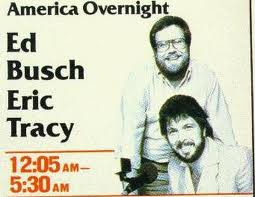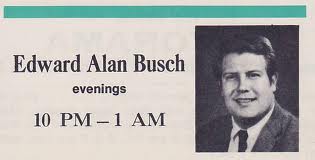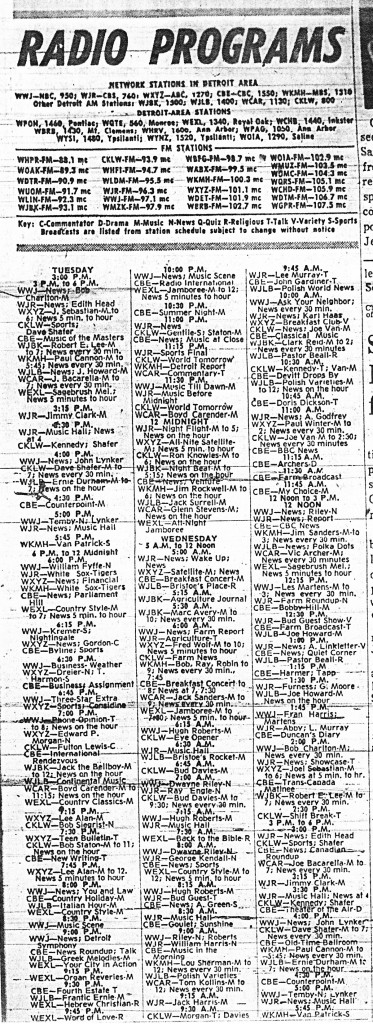WRIF PD Pleads For Reserve Seatings In Lieu of Crowd Rush Safety; Brass Ring Says ‘Festival Seating’ Admission Will Do Fine
 DETROIT — A dome full of controversy over public safety including legal suits and radio and television editorials surrounds the upcoming Rolling Stones concert at the Pontiac Silverdome November 30 and December 1.
DETROIT — A dome full of controversy over public safety including legal suits and radio and television editorials surrounds the upcoming Rolling Stones concert at the Pontiac Silverdome November 30 and December 1.
At issue is the practice of selling general admission tickets, also know as festival seating. Eleven persons died in the crush to get good seats in Cincinnati two years ago at a rock concert featuring the Who. Since then, public criticism of festival seating has led to seating policy reform in Ohio and orther parts of the country. There are no laws prohibiting festival seating in Michigan.

Concerns over safety gained added weight last week when a performance by the Rolling Stones in Worcester, Mass on Monday, September 14 turned into a disturbance. An estimated 4,000 fans turned out for a supposedly secret concert for 300. Seventy police offices tried to control and quell the crowd and made 11 arrests that evening in the process.
Following the incident at Worcester, two possible shows at Boston’s 2,800-capacity Orpheum Theater were scrubbed by city officials for security reasons. Instead, Boston Mayor Kenneth H. White suggested that the band play a free concert at City Hall Plaza Sunday. This suggestion was turned down, and according to promoter Don Law’s office, no Rolling Stones dates are scheduled for Boston at this time.
The Rolling Stones tour officially begins Saturday, September 26 when the group will play two shows before an estimated sold-out crowd of 90,000 at JFK Stadium in Philadelphia.

In Detroit, almost immediately following the recent announcement by concert promoter Brass Ring that seats for the two Silverdome concerts would be occupied on a general admission basis, Fred Jacobs, program director of WRIF-FM, went on the air with a plea for greater audience concerns amid crowd rush safety issues. The ABC-owned radio station’s television affiliate, WXYZ-TV, Channel 7, also editorialized against the planned seating arrangement.
Meanwhile, two University of Detroit law students has filed suit in Oakland County court to block the concert if tickets are not sold on a reserve seating basis.
Brass Ring has insisted that the concerts are safe and that the security arrangements are more than adequate,. If both concert dates are sold-out as expected, the gross income from 150,000 tickets will be estimated at $2.5 million.
The Stones current tour in support of the recently released Tattoo You LP will cover 21 cities. The expected attendance is estimated over 1.5 million fans who will pay an estimated $20 million to see the Stones perform.
The Stones were originally scheduled to play the Silverdome on November 30 only, but tickets for that concert sold-out in a few days. The heavy demand led to the addition of a second show for the following night with a limit of six tickets per customer sold by mail order only. Brass Ring Productions stated that the second performance at the Silverdome precludes a rumored appearance by the group in an unnamed small local club.

“Every promoter in the country learned by that (Cincinnati tragedy) and everybody’s planning better,” Jeff Ellwood, spokesman for Brass Ring says in defense of the seating plan for the Stones’ appearance in Pontiac. To avoid any possibility of a rerun of the fatal crush for seats, the Silverdome gates will be opened several hours before the scheduled showtime, security has been beefed up, and a phone hotline has been installed to give updates on the event.
WRIF’s PD Jacobs says that the contents of his editorial was “non-juicy,” asking questions of who’s responsible, is there a need for festival seating, and is it safe.
“Referendum (a call-in listener poll) is running 10 to 1 against festival seating,” Jacobs says. “The promoter took our latest editorial very personally. It’s too bad because the issue here is public safety. We love the Stones, everyone at WRIF is looking forward to the concerts, but why no reserve seating?”

Law students Steven Iamarino and James Rocchio filed for an injunction in Oakland County Circuit Court seeking a temporary restraining order barring the concerts unless the reserved seats are sold. The motion was denied by Judge Hilda Gage on September 11. She sets an October 7 court date to hear testimony on the case.
The plaintiffs Iamarino and Rocchio are suing the Silverdome, the city of Pontiac, Brass Ring and Rainbow Productions, the New York promoter, on the grounds the concerts’ proposed seating is a threat and danger to both public and personal safety.
“A class action may be approriate,” Iamarino says. The class action could include all those who requested tickets. Iamarino and Rocchio plan to submit lists of questions concerning public safety and security precautions at the Silverdome to all four defendants named.
L. Brooks Patterson, Oakland County Prosecutor, plans to step in if the Silverdome doesn’t act to “minimize the risks.”
“I consider festival seating risky,” says Patterson, “I’m waiting to see how far the stadium is willing to go to reduce the risk. By that I mena open up all the gates far in advance of the concert. If they only plan to open two or three gates a couple of hours before the show starts, we would take action in the form of a lawsuit.”
The Silverdome’s office of promotions and publicity says the entire stadium facility will be opened up. “Security and insurance coverage are contractual obligations of the promoter,” the office says, “and they are required to furnish extensive coverage.”
The State of Ohio and the city of Cincinnati took legislative action in wake of the 1979 tragedy, according to state legislative Senator Stanley Aronoff’s office. “It took 15 months for the legislation to act but now we have very detailed, stringent restrictions on festival seating, based on type of concert, area, and facility,” say Mary Williams of the Senator’s office.
“Of course, if you have a ballet and the crowd is 4,000 by admission that’s not the same concern. Cincinnati also has very strong local ordinances limiting festival seating,” she went on to add. END.
(Information and news source: Billboard; September 26, 1981).
![]()




















